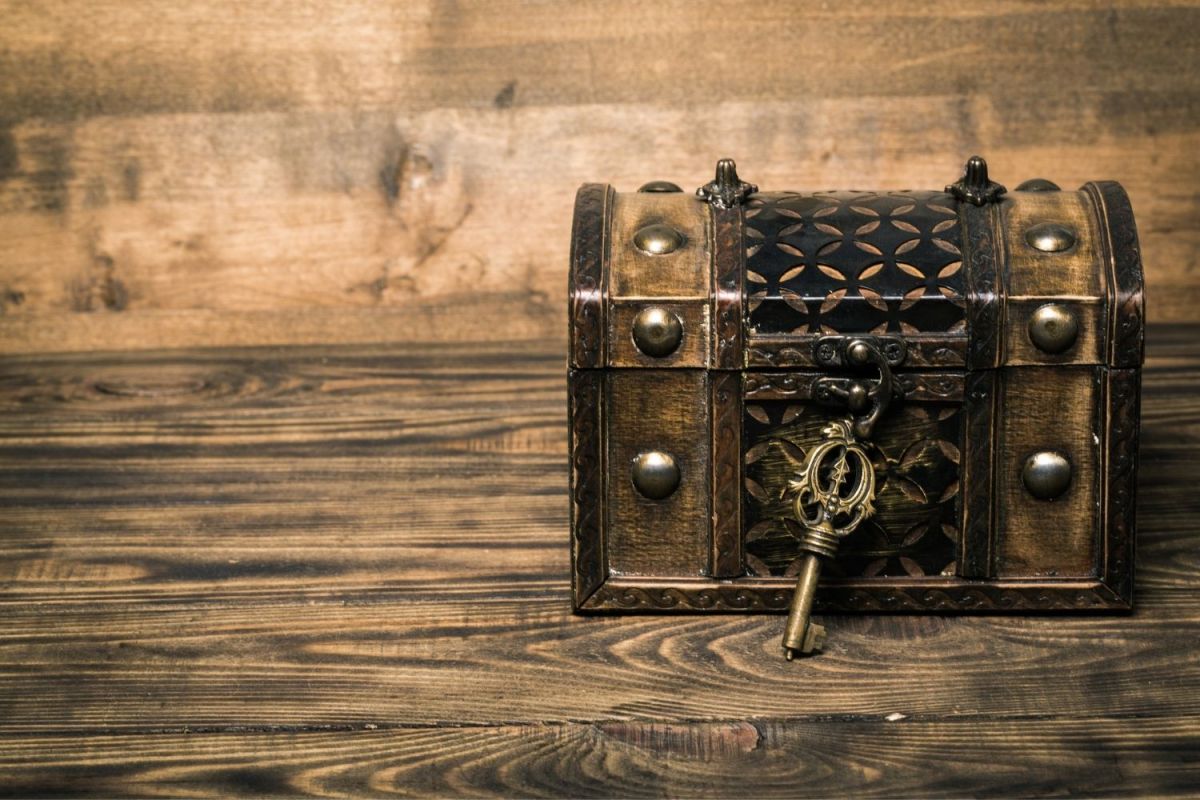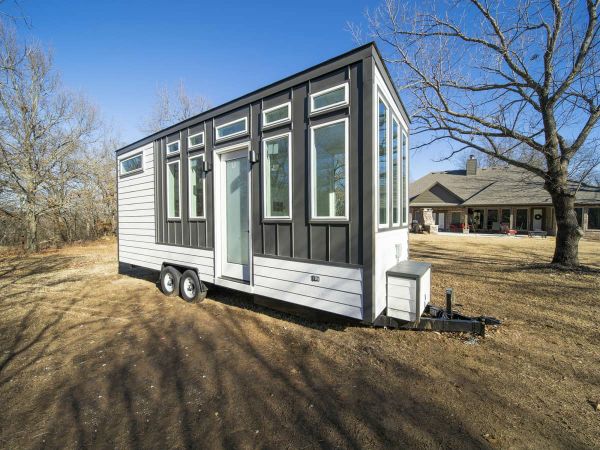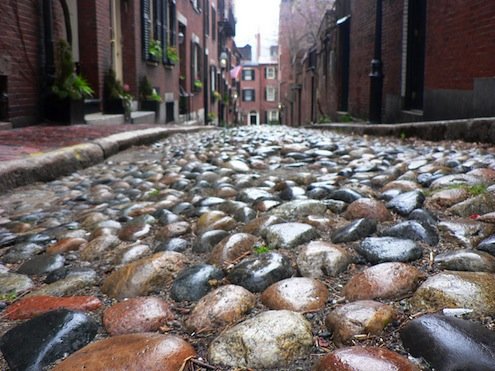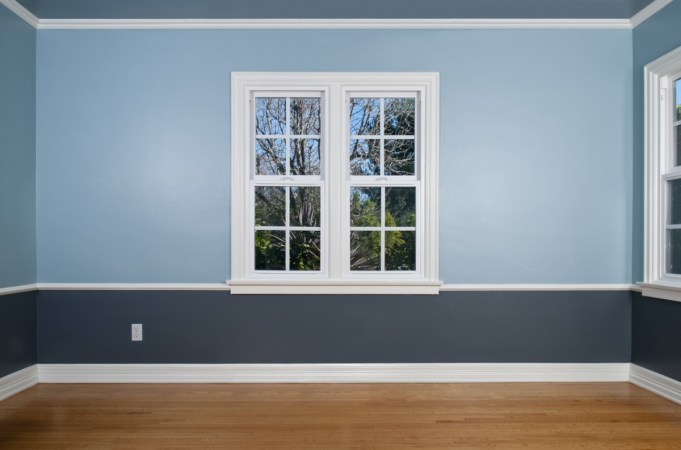We may earn revenue from the products available on this page and participate in affiliate programs. Learn More ›
Q: During a recent renovation of our home, we found an old tin box hidden under some floorboards in one of the closets. Inside were some matchbooks and a black-and-white snapshot of a young woman. From her hairstyle and dress, it looks like the photo is from the 1930s. Now I’d love to find out more about the woman, and about the history of our house in general, but I’m not sure where to start looking. Any advice?
A. How exciting! Even everyday objects turn into a fascinating time capsule when they’re found hidden behind a wall, beneath a floor, or deep inside a dark corner of an attic.
Whether you’re a proud first-time homeowner, a history buff, or just curious about all the little quirks you’ve encountered since moving into your current house, researching a property and its previous owners can be a rewarding foray into the past. Along the way, you’ll likely learn about the history of your neighborhood, the city itself, and maybe even the previous generations that lived under the very same roof.
Much like genealogy, researching the history of your house might seem daunting at the outset, but once you dive in, you’ll soon find yourself falling down rabbit holes and delighting in your discoveries. Let’s get started!
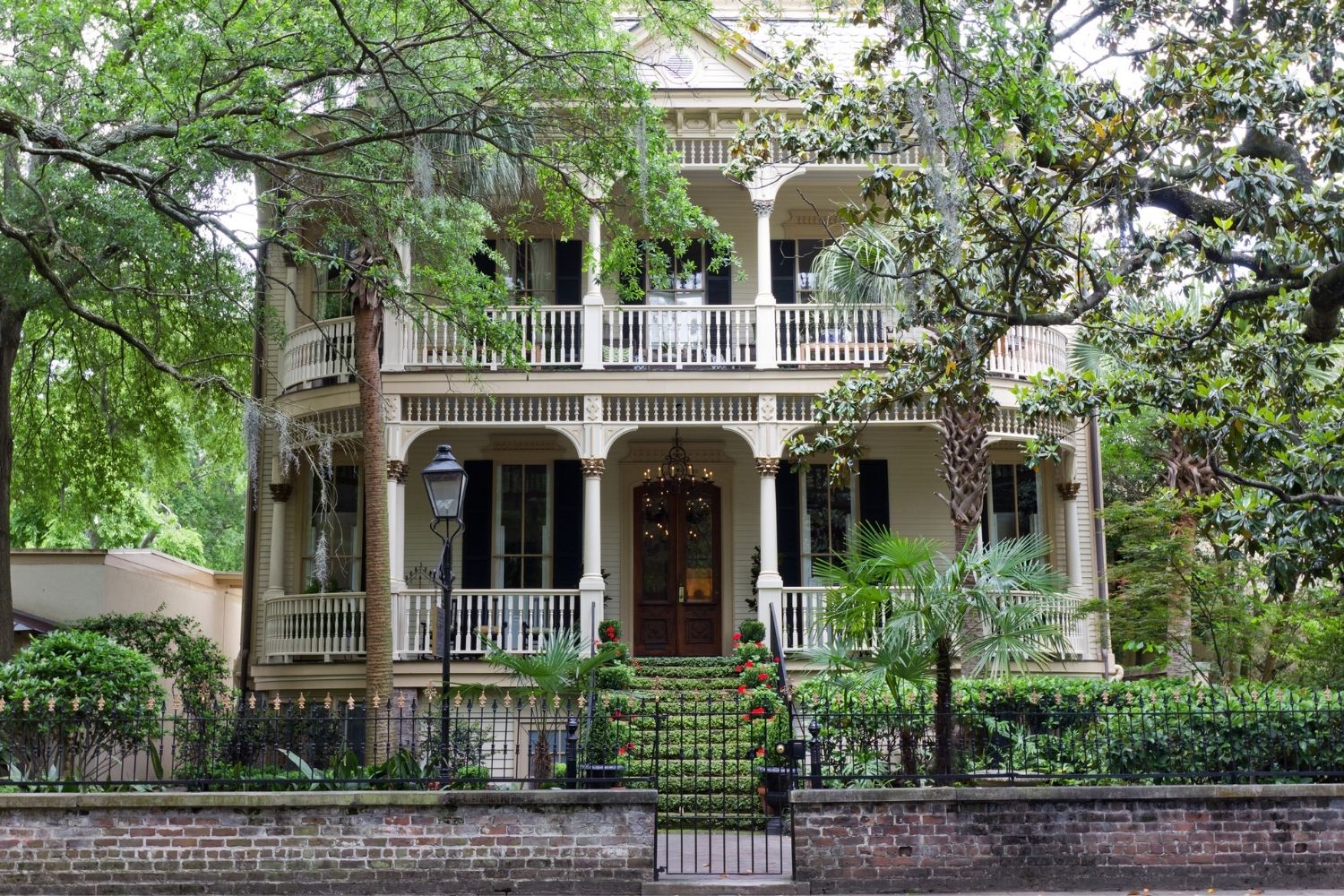
Visual Clues
Don’t know a Dutch Colonial from a Cape Cod or a Chicago Worker’s Cottage from a California Bungalow? You don’t have to be an architectural expert to determine your home’s age by merely looking at its major features. Compare its size, silhouette, layout, roof type, building material, and the placement of its doors and windows to definitive examples of major architectural styles.
This can help narrow down your residence’s birthdate, but it’s not always foolproof. Common home styles can span decades of construction history—for example, the humble ranch house debuted in the 1930s, rose to suburban ubiquity in the ‘50s and ‘60s, and is still being constructed today.
Additionally, there’s no shortage of homes that began life as one style before morphing into something very different due to renovations and additions. The history of these houses can be even more intriguing, however, than those whose appearance has never been altered.
RELATED: 15 Old House Features We Were Wrong to Abandon
Ask Neighbors
Just as word-of-mouth is one of the best ways to find high-quality products and services, your neighbors can be a rich source of information when you’re researching your home’s history. This is especially true if their house and yours are similar architecturally, which itself is a clue that they were likely built around the same time. They may even have been designed and built by the same folks, too.
If you’re already acquainted with the people who live next door or across the street, their front porch might be the best place to start your search. Haven’t yet introduced yourself? A residential research project makes for an excellent icebreaker. You may hit the jackpot by learning that their home has been in the family for generations, and they have extensive documentation. Or maybe they’ve already been down this path and have a plethora of facts to pass on.
Even if your inquiries don’t net you any info, it doesn’t hurt to make friends.

Search Public Records
Looking at a home and hoping to suss out its history is a bit like getting to know a person by studying a statue or photo of them. Sure, you can categorically determine many qualities and infer even more. But the biographical facts take a bit more digging. Start with the most readily available, easy-to-access public records: titles, deeds, property tax records, plat maps, and other local history documents.
Local libraries and historical societies often have extensive collections that include informative documentation. What’s more, the librarians or curators are usually happy to help you search their materials as well as offer suggestions for searching further. While you’re scouring these local resources, make sure to look at their archives not just of property records, but also of newspapers, maps, and town or city directories.
The Bureau of Land Management General Land Office Records offers documents that date as far back as 1788.
Go Backward in Time and Picture the Past
There’s nothing stopping you, of course, from popping the building’s address into Google. Depending on the age of the house, though, a deep dive into its past might not be that straightforward. That’s because the identifying characteristics of a home—lot designations, house numbers, and street names—could have changed over the years. You’re better off working backward, going back in time from the earliest owner whose information you know, even if that’s yourself.
One surprisingly effective research route is photography. People have taken snapshots of their homes for as long as the technology has allowed, either as the subject of the photo or as the backdrop for family portraits. If your home has any historic value, even on a relatively minor local level—say, being the first brick home built in the area or the residence of a local dignitary—there may well be images of it in historical records as well as in family collections.
The Library of Congress’s Prints and Photographs Online Catalog is one potential treasure trove—be warned, though, that it’s also one of those rabbit holes we mentioned above!
RELATED: Remodeling an Old House—What Should You Keep
Search for Former Residents
Property and house history has a lot of crossover with genealogical research materials, as you might imagine. So if you’re hitting dead ends while searching for land and building records, try going at your explanation in a more roundabout way. Websites dedicated to family trees and genealogy could be helpful. So, too, could the county clerk’s office or county recorder’s office; these will have records of births, marriages, divorces, and deaths.
You can also easily search census records that date from 1790 to 1940. (Census information is kept private for more than 70 years, so you won’t find anything newer than that.)

The Dark History of Your Home
It may seem a little macabre, but finding out that a former resident actually took their last gasps inside your new home can alter your feelings about it. Would you believe that in most states, there’s no requirement to disclose any deaths that happened in the home? In others, the real estate agent is obliged to let you know only about certain types of deaths, such as murders, recent deaths, or those due to property conditions such as toxic mold.
If you are still in negotiations to purchase the home, ask your agent. You can find out this information after the fact, as well, by checking out sites like Died In House. This resource will also inform you of fires, methamphetamine-lab activity, and the names of folks associated with that address.
RELATED: 16 American Towns Every Old-House Lover Needs to See
